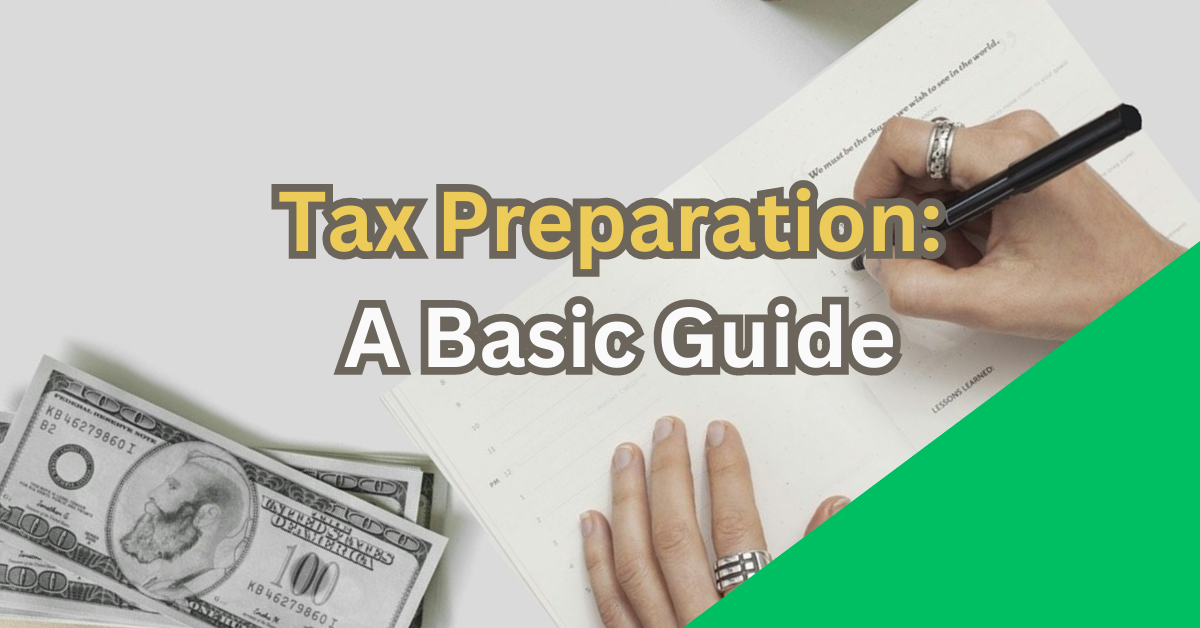Tax preparation is a vital process that allows individuals and businesses to fulfil their legal obligations and ensure accurate reporting of their financial information to the government. By being well-prepared for tax filing, you can optimize deductions, maximize credits, and minimize errors or penalties. This guide provides a step-by-step approach to help you navigate the tax preparation process effectively.
Understanding the Tax Preparation Process
To begin, familiarize yourself with key deadlines and important dates associated with tax filing. Identify the specific tax forms you need to complete, such as 1040, 1099, or Schedule C, depending on your situation. Additionally, determine the most suitable filing status for your circumstances.
Gathering Required Documents
Collecting the necessary documents is crucial for accurate tax preparation. Start by gathering personal information and identification details for yourself, your spouse (if applicable), and any dependents. Collect income-related documents like W-2s, 1099s, and other relevant forms. Additionally, compile documentation for potential deductions and credits you might be eligible for. If you’re self-employed or a small business owner, ensure you have all the records necessary for reporting your business income and expenses.

Organizing and Reviewing Your Financial Information
Establish a system for organizing your financial records, ensuring easy access and retrieval when needed. Analyze your income sources and review the accompanying documentation for accuracy. Scrutinize your expenses to identify potential deductions. Thoroughly examine your financial information to identify any tax credits you may qualify for.
Maximizing Deductions and Credits
Familiarize yourself with common deductions that could reduce your taxable income, such as education expenses, mortgage interest, and charitable contributions. Understand the eligibility requirements and limitations associated with tax credits, such as the Child Tax Credit or the Earned Income Tax Credit. By optimizing deductions and credits, you can minimize your tax liability.
Choosing the Right Tax Filing Method
Consider the different methods of filing your taxes, such as electronic filing (e-filing) or traditional paper filing. Explore the use of tax preparation software, which can simplify the process and reduce the chances of errors. Alternatively, consult a tax professional or accountant if your tax situation is complex or if you prefer professional guidance.
Tips for Smooth Tax Preparation
Stay updated on tax law changes that might impact your tax preparation. Avoid common mistakes such as mathematical errors, missing deadlines, or using incorrect filing statuses. Take advantage of online resources and tools provided by the Internal Revenue Service (IRS) to assist with tax preparation. Seek professional advice when necessary to ensure accuracy and compliance with tax regulations.
Filing Your Taxes and After
Follow a step-by-step guide to filing your taxes accurately. Double-check your tax return for any errors or omissions before submission. Understand the options available for receiving your tax refund and consider making estimated tax payments if applicable. Retain copies of filed returns and supporting documents for your records.
Dealing with Audits and Tax Issues
While proper tax preparation reduces the likelihood of audits or tax issues, it’s important to understand the audit process should you ever face one. Take steps to handle audits or tax-related issues promptly and seek professional assistance if necessary to navigate complex situations effectively.
Tax preparation is a crucial aspect of managing your financial obligations responsibly. By following this comprehensive guide, you can streamline the tax preparation process, maximize deductions, and ensure accurate reporting of your financial information. Start your tax preparation early, stay informed, and seek professional assistance when needed. Remember, being well-prepared for tax filing brings peace of mind and helps you make the most of available deductions and credits.

